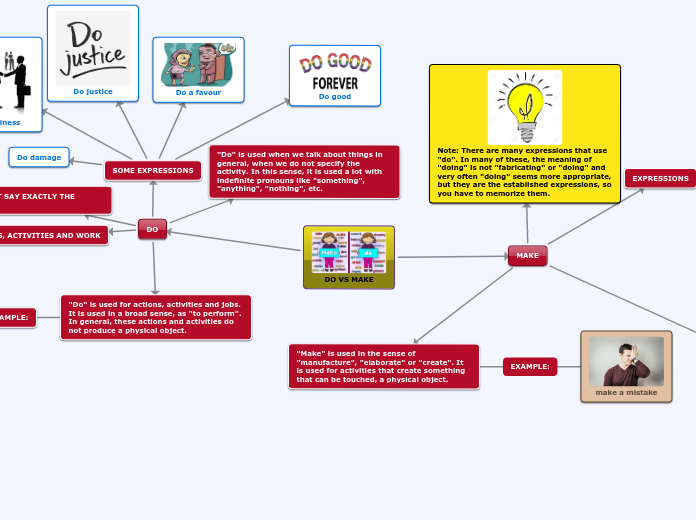por Jessica Puentes 6 anos atrás
902
DO VS MAKE

por Jessica Puentes 6 anos atrás
902

Mais informações
make a mistake
We do come to school by bus.